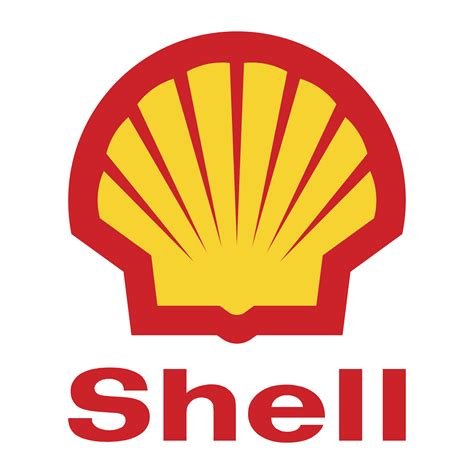
Royal Dutch Shell

Shell PLC (FTSE 100 – SHEL) formally known as Royal Dutch Shell is a well known energy business and has been operating for over 185 years.
Evolving from its humble beginnings back in 1833 in an antiques shop based in London, Shell is one of the largest global energy companies today, Shell is both innovative and successful.
There is a saying in the investment world: “Never sell Shell” as it is renowned for its quality business and historical dividends as well as being one of the largest FTSE 100 paying companies.
Its business is caught in the modern times and is at the start of a new cycle in its history of transitioning from an old oil company to a new energy business. The group has been seeking new investments in low carbon energy production which include liquified gas or natural gas, that has a lower carbon output than traditional coal when generating electricity. This integrated gas business Shell operates is one of the largest in the world. Shell is helping us all as we transition from dirty goal by using LNG as a transitioning fuel, helping generate cleaner electricity and lowering carbon emissions. There is a low carbon commitment and focus on renewables like wind, solar, hydrogen and Carbon Capture projects through the new Shell Energy business set up in 2016.
As we watch the news and read about the climate emergency there is still a need for fuel for our transport, like cars, public transport or the lorries to distribute all of the goods we consume everyday.
Our world still requires energy and all us consumers use it, whether we admit it or not. Therefore I see a continued case for Shell remaining within the portfolio as it pays a dividend and is making the right transitional steps to a greener future.
Part of my investment thesis is to ensure part of my portfolio is sustainable and Shell can be part of that as mentioned in the reasons above. A vast amount of money generated from traditional fuels is already being diverted to new green investments and technologies. All oil majors will only increase this type of spend over time, leaving companies like Shell with a portfolio of green investments and greener power generation. The same is already happening with other oil majors as they are all are seeking ways to transform their businesses to a new low carbon future. Due to the sheer amount of funds available, how we will view these businesses in 80 years from now should be vastly different from today. They are predicting 80% of their energy from will be from renewables and just 20% (if that) from old oil investments. (Click her for Shells wind projects).
Hydrogen another fuel type that is going to be a fuel of the future and Shell has already over 50 stations around the world delivering Hydrogen from the: UK, Netherlands, Canada & China. From the production to distribution Shell is making investments in hydrogen and if you are interested further in their projects click here.
As revenues are created in over 80 different countries I would class Shell as a diversified stock. There has been a recent focus on supplying retail customers through its forecourts.
Here are some of the reason why I invest in Shell:
1, Investments into wind started over 20 years ago off shore in UK waters and in the USA on land totalling 6 Giggawatts (GW)
2, There are three major carbon capture projects in Canada, Australia & Norway
3, Hydrogen production has started and is distributed in countries like: Germany, Netherlands & US Markets
4, Revenues from the established oil and gas streams will help contribute and drive the business towards its green energy transition.
5, It is well known equity amongst institutional investors for its quarterly dividend income
6, Operationally the entire sector has become more cash disciplined of late, there has been an emphasis of both increasing dividends and share buy backs among all the major players.
7, Long term plans around the Gas division and specifically LNG have been steadily growing and reaping rewards for Shell, as Liquified Natural Gas is viewed as a transitional fuel, as we work towards a greener future.
The divestiture of the utilities business to Octopus Energy in 2023 completed in the final quarter, this segment was not deemed to be very profitable due to the government regulations and the complexities surrounding price caps.
Royal Dutch Shell Average five year share price
Shell’s average share price over the last five years (08/2009 to 08/2024) sits between:
At the lowest point of £8.78 on 28/10/2020 during the pandemic.
To the highest of £29.52 on the 12/04/2024.
Based on our own personal experience and looking at a long term hold, today we would be looking to purchase additional shares around the £19.50 to £21.95 price target.
An ideal exit strategy would be to hold for 10-15 years before selling at a target sell price between £35.00- £40.00.
Royal Dutch Shell Dividend
Shell usually distributes a quarterly dividend that paid in the months of: March, June, September and December.
In June 2024 Shell announced shareholder distributions will be increased from free cash flow between 30-40%. The last quarterly dividend increased by 15%.
A third interim dividend was declared at $0.3580 cents in November 2025; going ex dividend on 13.11.25 and was paid on 18/12/2025.
Shells’ projected 2025/26 dividend per share is $1.4320. Please remember no dividend is ever guaranteed so it could be reduced or cut completely at any time.
Purely for research purposes we have listed the last six years of the paid dividends below:
2025 $1.43
2024 $1.39
2023 $1.29
2022 $1.04
2021 $0.89
2020 $0.65
This foundational stock is held in the portfolio for income as we have received excellent income and capital gains over the years. We have twice purchased shares well below value and sold as a fantastic profit. This is evident in 2018 and 2023. The total income received from investing in Shell is the highest within the portfolio with a grand total of £5,979.09 over a nine year period.
P/E of 9.48 on (19/12/25)
Dividend Yield 3.99% (19/12/25)
Further income analysis can be viewed in the file below:
(FTSE:SHEL)
Website Disclaimer:
Please remember that all investments can rise and fall in value, therefore you may get back less than you originally invested.
This website or webpage is not a suggestion to purchase or invest in any stocks / equities and is presented purely for research analysis.
Should you be unsure of any investment whether it be purchasing shares directly, funds or investment trackers, you should seek independent financial advice from a qualified financial advisor.
All logos and Trademarks are the property of the company covered in this article. We only use logos/pictures to assist investors identify the Brand/s and encompassing products.

